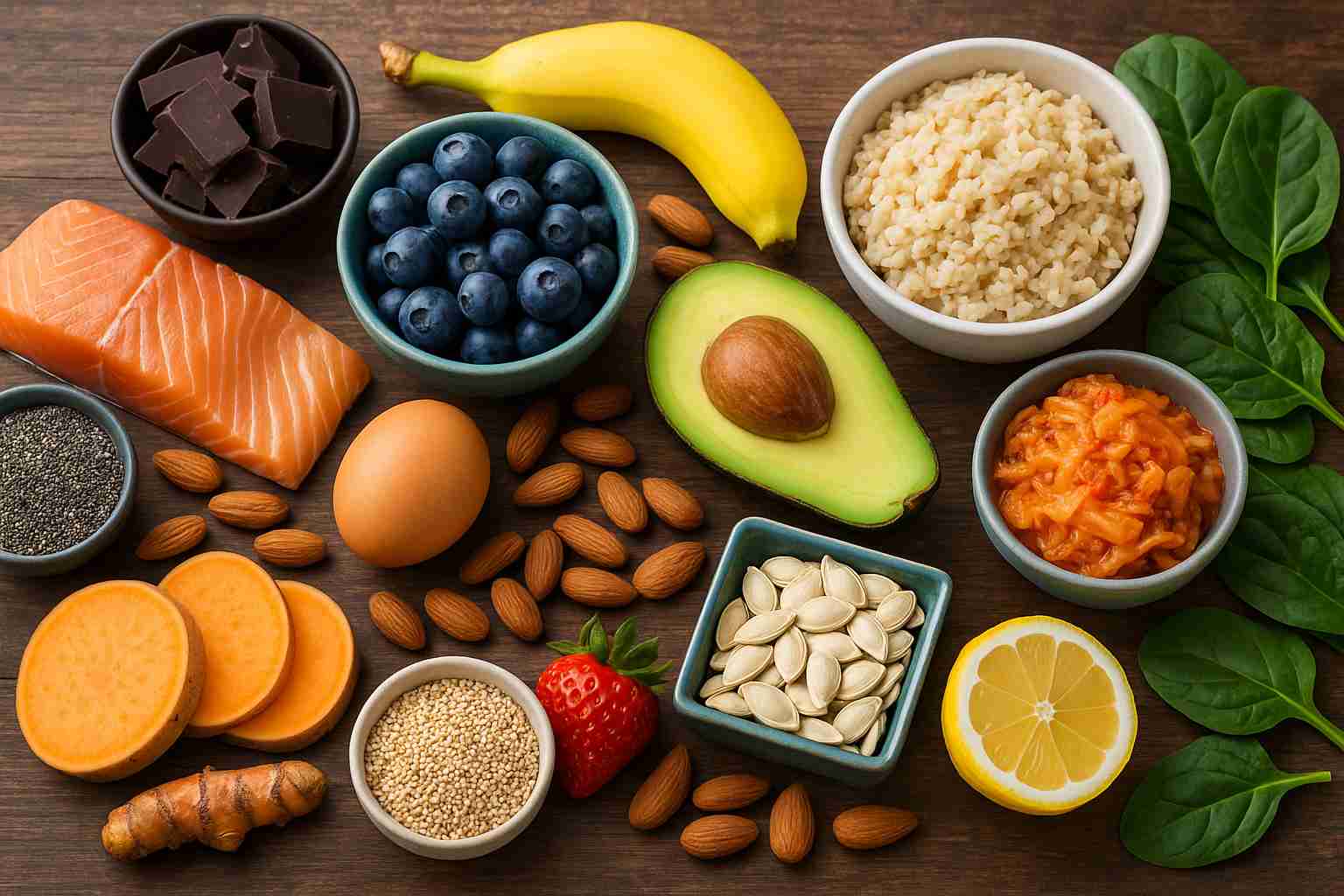Modern life comes with its share of stress, fatigue, and emotional turbulence. Fortunately, nature offers powerful allies in the form of mood-boosting superfoods. These nutrient-dense choices don’t just support physical health—they actively nurture mental well-being, thanks to their rich content of vitamins, minerals, antioxidants, and neurotransmitter-enhancing compounds. Here’s a deep dive into 15 remarkable superfoods that can help lift your spirits and stabilize your mood.
1. Dark Chocolate

Dark chocolate is more than a delicious indulgence—it’s a scientifically supported mood booster. Packed with flavonoids and antioxidants, it increases blood flow to the brain, enhancing cognitive function and reducing mental fatigue. Moreover, it stimulates the production of endorphins and serotonin, which play a critical role in emotional regulation.
Opt for chocolate with at least 70% cocoa content for maximum benefits and fewer added sugars. A small daily portion can act as a comforting treat and a mental health aid. A 2019 study published in Depression & Anxiety found that individuals who consumed dark chocolate had significantly lower odds of depressive symptoms than those who did not. (source)
2. Fatty Fish

Fatty fish like salmon, mackerel, and sardines are rich in omega-3 fatty acids—especially EPA and DHA—which are essential for brain health. These fats help regulate neurotransmitters and reduce inflammation, factors that are often linked to mood disorders. Numerous studies associate higher omega-3 intake with reduced rates of depression and anxiety.
In comparison to red meat, which can contribute to inflammation, fatty fish provide a cleaner, mood-supportive source of protein. The American Psychiatric Association even recommends omega-3s as an adjunct therapy for mood disorders. (source)
3. Berries
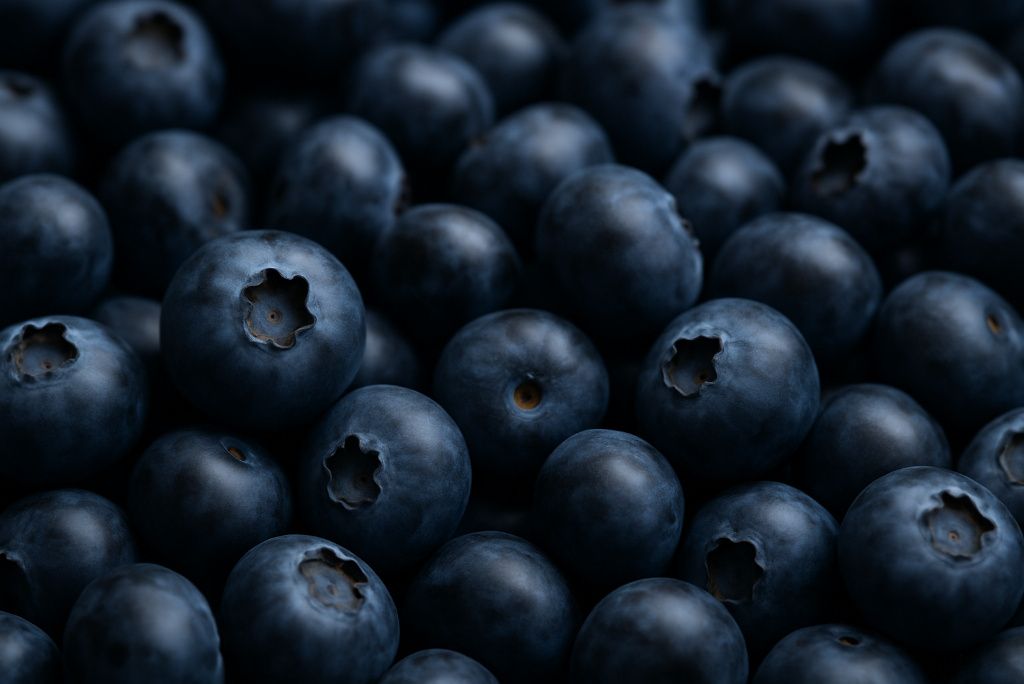
Blueberries, strawberries, and blackberries are antioxidant powerhouses. Rich in anthocyanins and vitamin C, they help combat oxidative stress, a known contributor to depression and cognitive decline. Studies have shown that regular berry consumption improves brain function and may delay age-related mental decline. Compared to high-sugar snacks, berries offer a sweet yet nutrient-dense alternative that supports mood and mental sharpness. According to research from Frontiers in Nutrition, berries can improve executive function and mood within hours of consumption. (source)
4. Leafy Greens
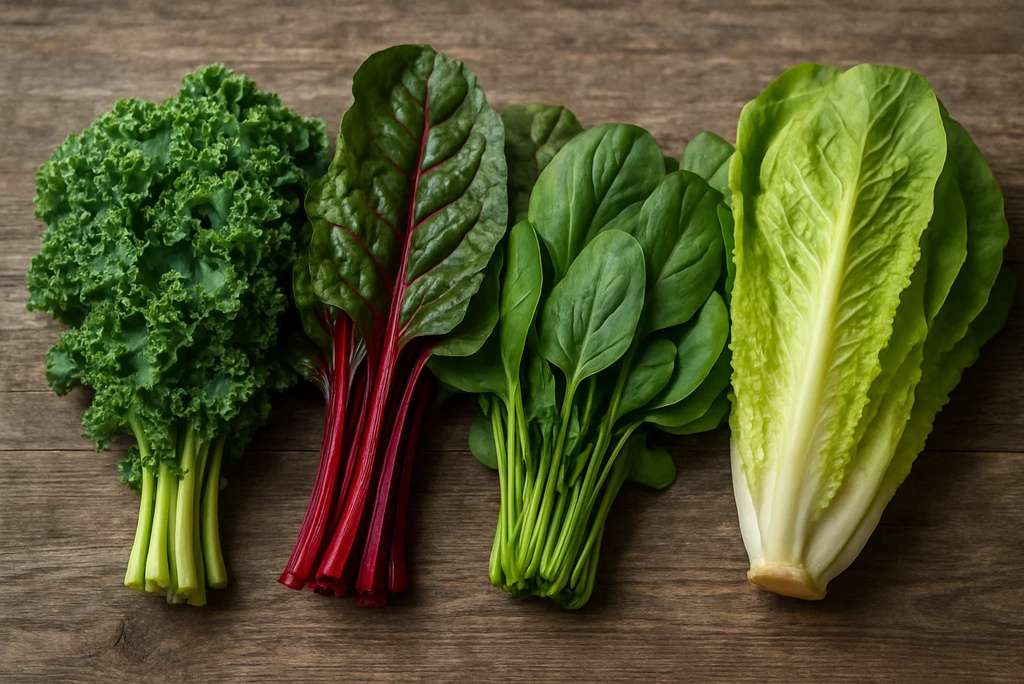
Spinach, kale, and Swiss chard are excellent sources of folate, a B vitamin that supports serotonin production. A deficiency in folate has been associated with symptoms of depression and fatigue. Leafy greens also contain magnesium, iron, and fiber, which promote stable energy levels and reduce inflammation. A daily serving of greens can be more effective for mood regulation than heavily processed multivitamin supplements. A Journal of Psychiatric Research article notes the inverse relationship between folate intake and depressive symptoms.
5. Nuts and Seeds
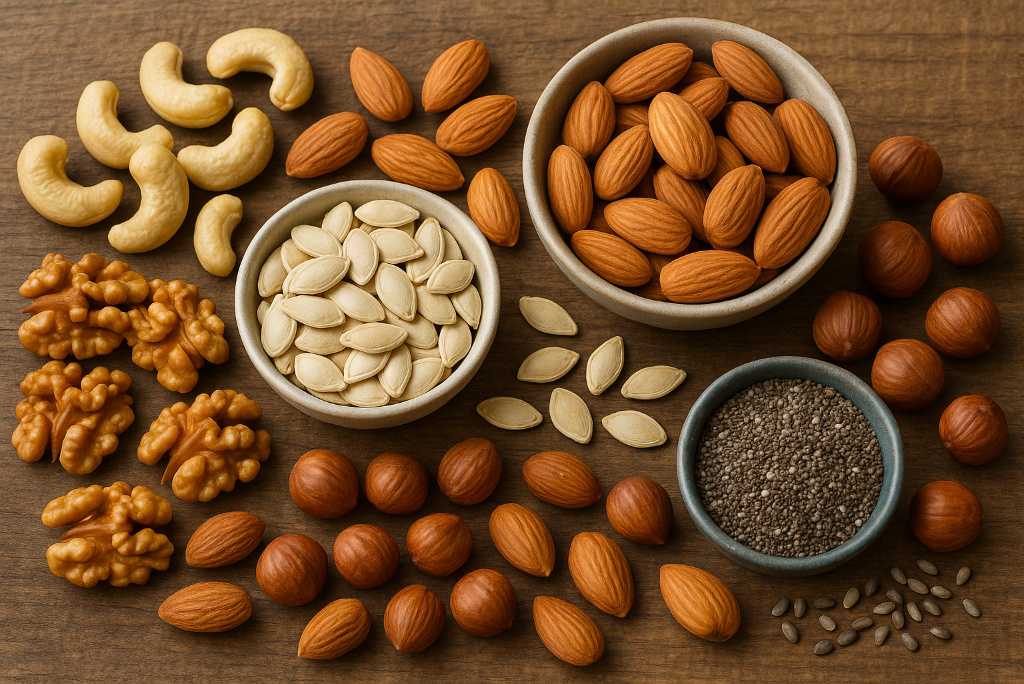
Almonds, walnuts, flaxseeds, and chia seeds are brimming with mood-stabilizing nutrients like magnesium, zinc, and omega-3s. These nutrients play vital roles in neural transmission and hormone balance. For example, Brazil nuts are rich in selenium, a trace mineral linked to improved mood. Compared to typical snack foods, nuts and seeds offer a longer-lasting energy release and no sugar crashes. A 2016 review in Nutrients highlights their antidepressant effects through inflammation reduction and neuroprotection.
6. Fermented Foods

Yogurt, kefir, kimchi, and sauerkraut contain live probiotics that support gut health—and by extension, mental health. The gut-brain axis is a well-established pathway where gut bacteria influence neurotransmitter production. By improving gut microbiome balance, fermented foods can ease anxiety and improve mood. In contrast to processed dairy, these options come with additional bioactive compounds that support digestion and cognition. According to Psychiatry Research, individuals who consume fermented foods report fewer symptoms of social anxiety. (source)
7. Bananas
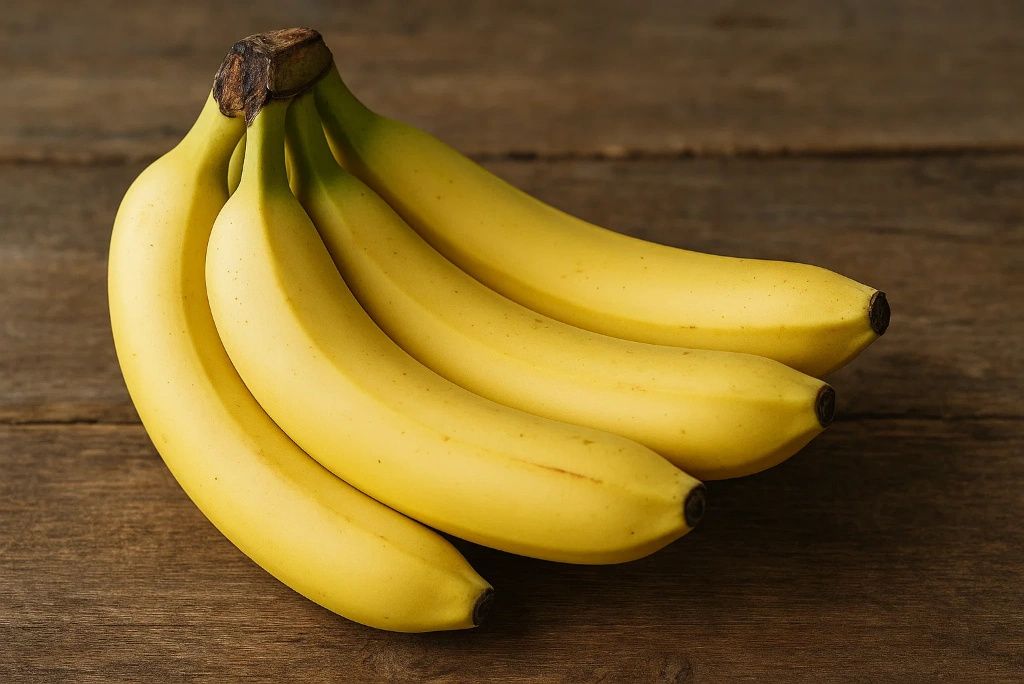
Bananas contain a high amount of vitamin B6, which plays a key role in the production of dopamine and serotonin. They’re also a great source of prebiotic fiber, feeding the beneficial bacteria in the gut. High in natural sugars and fiber, bananas provide a steady energy boost without spiking blood sugar. Compared to sugary snacks, bananas are a balanced, mood-supportive option. According to The British Journal of Nutrition, dietary B6 is significantly associated with reduced risk of depression.
8. Avocados
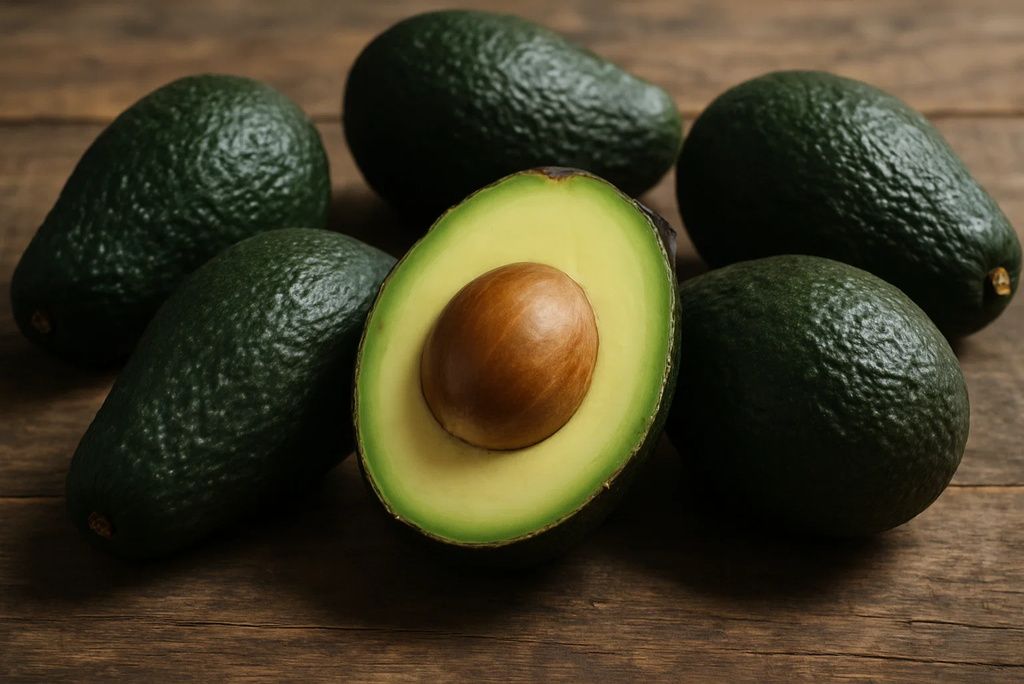
Avocados are loaded with healthy monounsaturated fats and folate. They also contain tryptophan, an amino acid precursor to serotonin. These creamy fruits support brain cell membrane flexibility and neurotransmitter function. Their magnesium content helps regulate mood and sleep, reducing stress levels. Unlike refined carbohydrates, avocados offer lasting satiety and steady energy. The Nutrients journal reports that frequent avocado consumers report better overall mood and dietary quality. (source)
9. Oats
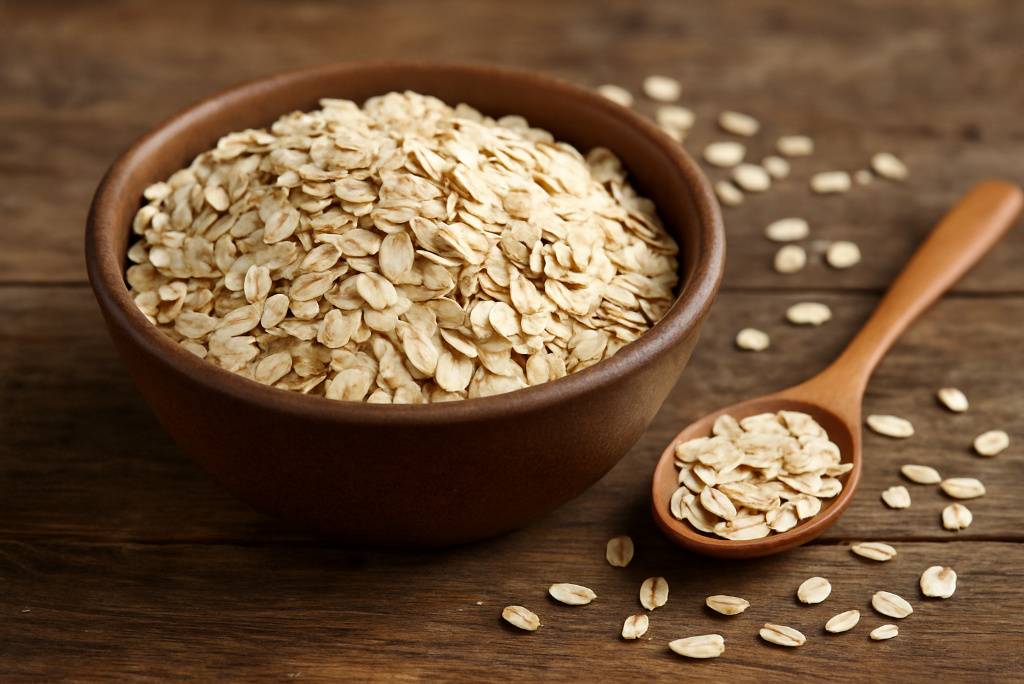
Oats are an excellent source of complex carbohydrates, which promote the release of serotonin in the brain. They’re also high in iron, magnesium, and B vitamins—key nutrients that influence mood and energy. Slow-digesting oats help maintain stable blood sugar, preventing mood swings. In contrast to sugary breakfast cereals, oats provide sustained fuel for both body and mind. A study in Appetite found that oat consumption led to better mood and alertness than ready-to-eat cereals.
10. Eggs

Eggs are one of the richest sources of choline, a nutrient essential for brain development and neurotransmitter synthesis. They also contain vitamin D and B12, both crucial for emotional stability. A balanced source of protein and fat, eggs help regulate hunger and prevent mood crashes. Compared to processed breakfast items, eggs offer a concentrated dose of nutrients that support cognition. According to the American Journal of Clinical Nutrition, choline intake correlates with reduced anxiety and better mental performance. (source)
11. Sweet Potatoes
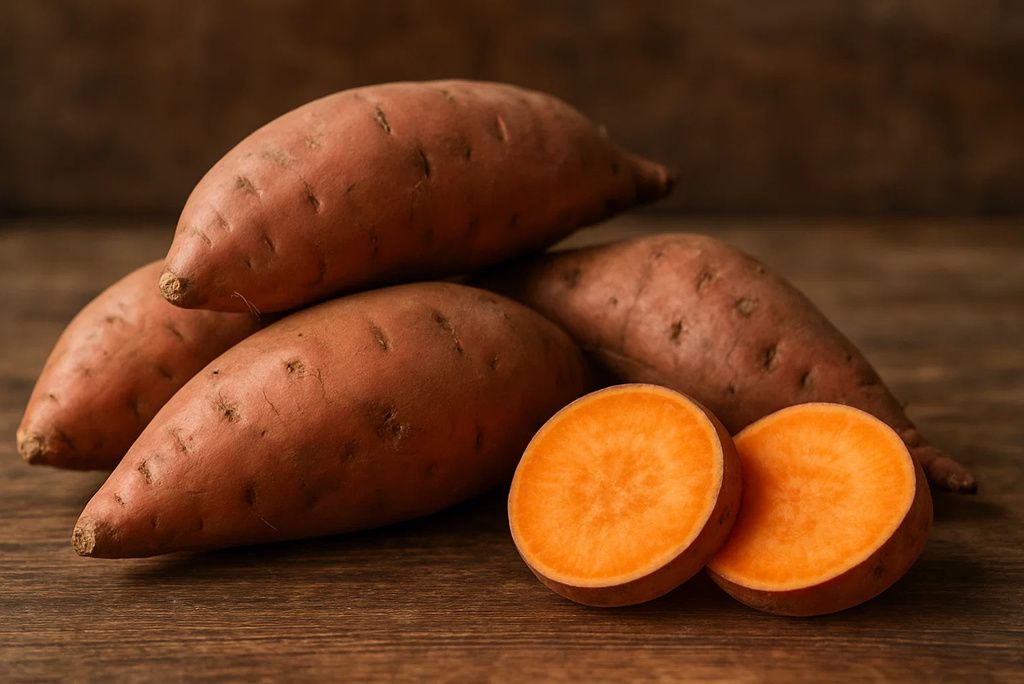
Sweet potatoes are rich in complex carbohydrates and beta-carotene, which support brain function and emotional balance. They also offer a generous supply of fiber, vitamin C, and potassium, which together help combat stress and support a healthy nervous system. Compared to white potatoes, sweet potatoes offer a lower glycemic index and higher antioxidant content. A study in Nutrients emphasized their role in improving gut health and reducing inflammation, both key factors in mood regulation. (source)
12. Green Tea
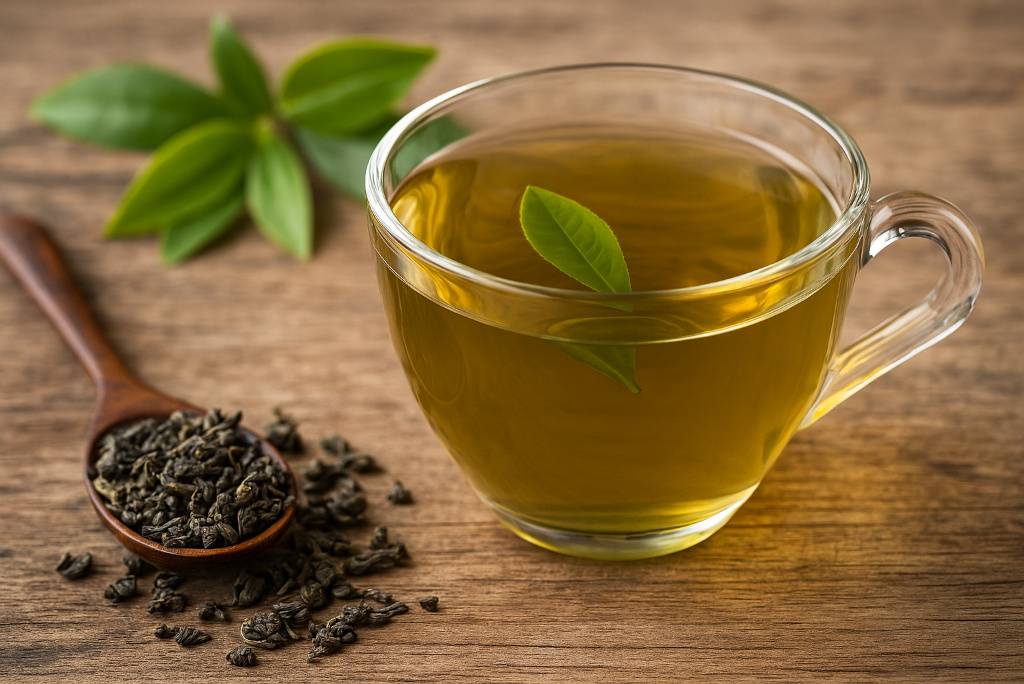
Green tea contains L-theanine, an amino acid that promotes relaxation without drowsiness. It also provides a gentle caffeine boost that enhances alertness and mood. Unlike coffee, which may spike anxiety, green tea offers a calm focus thanks to its unique chemical balance. In regular drinkers, green tea is associated with reduced psychological distress and improved sleep. A meta-analysis published in Phytomedicine found significant mood-enhancing benefits from L-theanine.
13. Turmeric
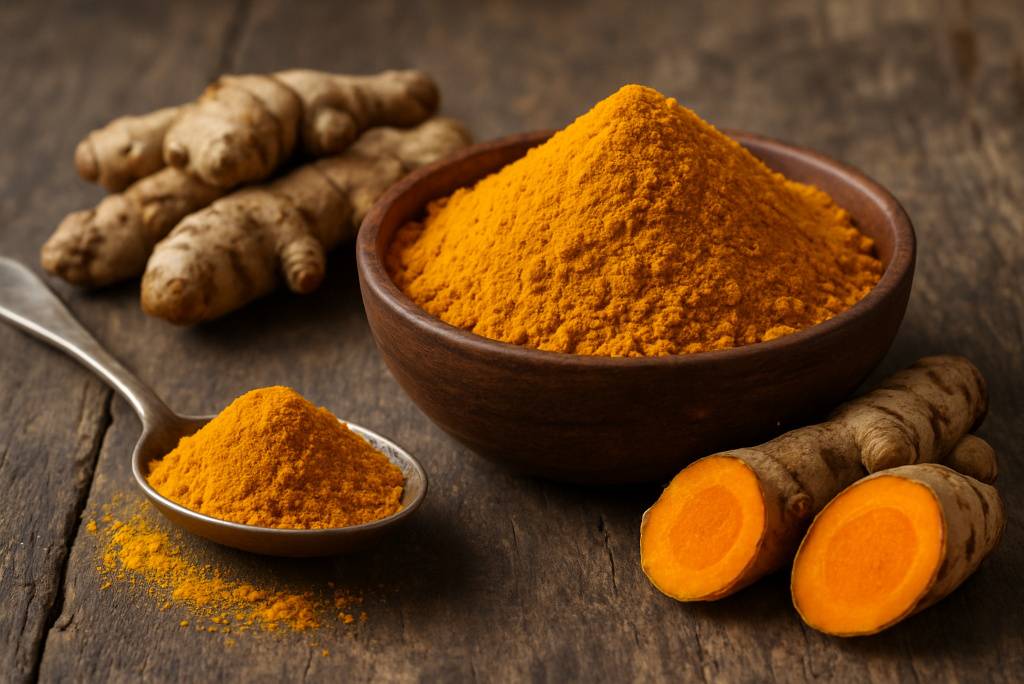
Turmeric’s active compound, curcumin, has potent anti-inflammatory and antioxidant effects that may ease symptoms of depression. It’s been shown to boost levels of BDNF (brain-derived neurotrophic factor), which supports neural growth and function. Adding turmeric to meals or taking it as a supplement can improve both cognitive performance and emotional balance. In contrast to over-the-counter anti-inflammatories, turmeric offers natural neuroprotective benefits. Journal of Affective Disorders highlights its efficacy in reducing depressive symptoms.
14. Pumpkin Seeds
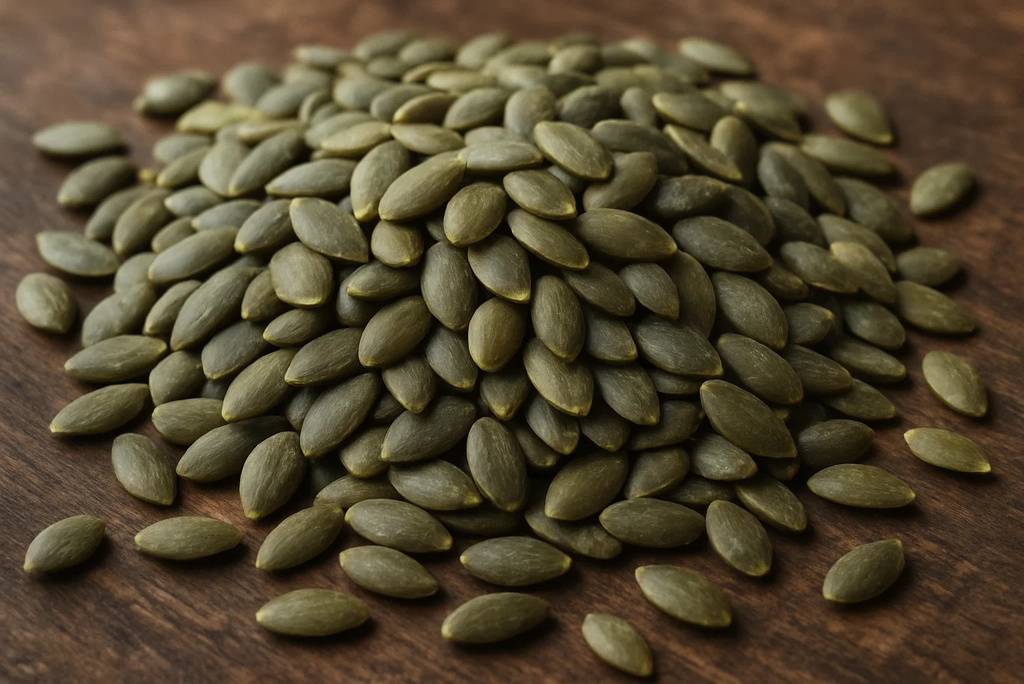
These seeds are packed with magnesium, zinc, and tryptophan—nutrients that help regulate mood and improve sleep. Just a small handful delivers a powerful combination of brain-supporting compounds. They’re especially useful for people dealing with stress, anxiety, or seasonal affective disorder (SAD). Compared to salty snack foods, pumpkin seeds provide mood-boosting minerals without empty calories. The Nutrients journal reported that higher dietary magnesium intake is associated with a lower risk of depression. (source)
15. Legumes
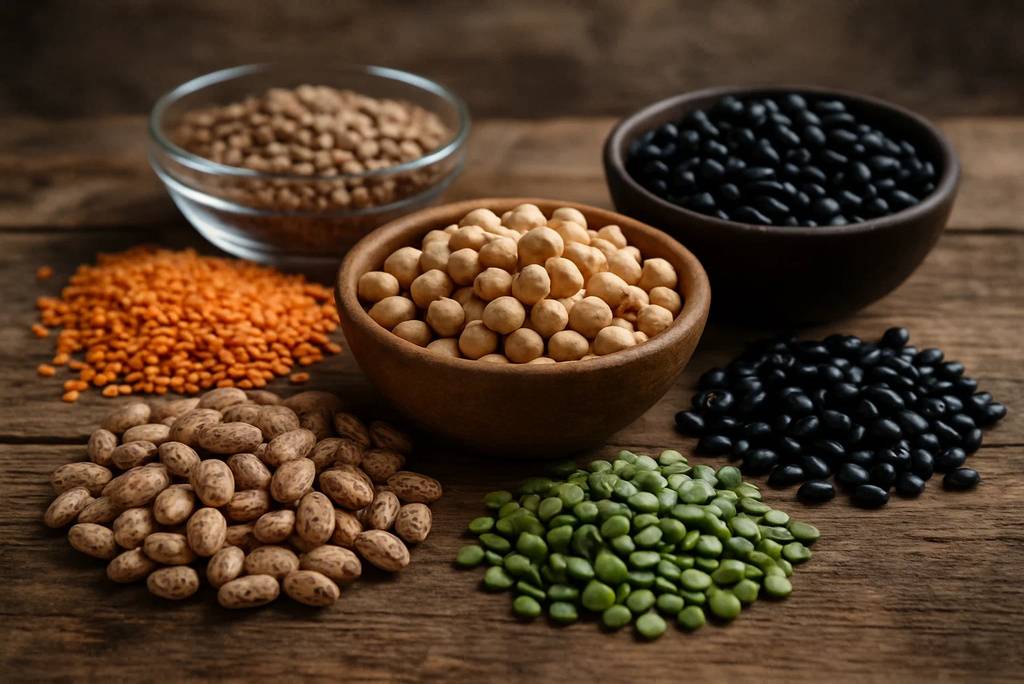
Beans, lentils, and peas are rich in plant-based protein, fiber, iron, and folate—all essential for optimal brain chemistry. Their low glycemic index helps stabilize blood sugar and energy, preventing irritability and mental fatigue. Compared to animal proteins, legumes also offer a fiber-rich and environmentally friendly alternative. According to the World Journal of Psychiatry, legumes are associated with a lower risk of depression and improved mood resilience. (source)
Disclaimer: This article is for informational purposes only and is not a substitute for professional medical advice, diagnosis, or treatment. Always consult with a healthcare provider before making significant changes to your diet or lifestyle.

